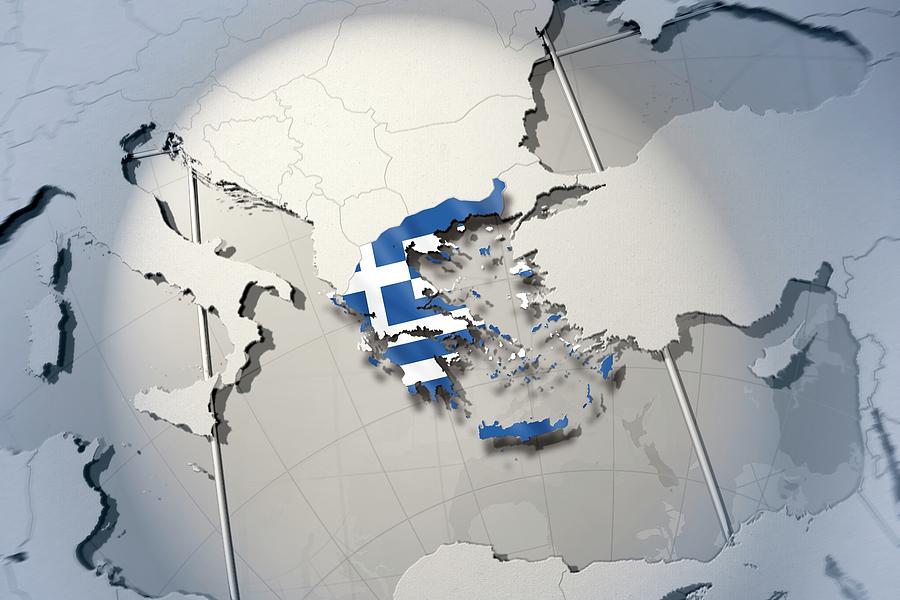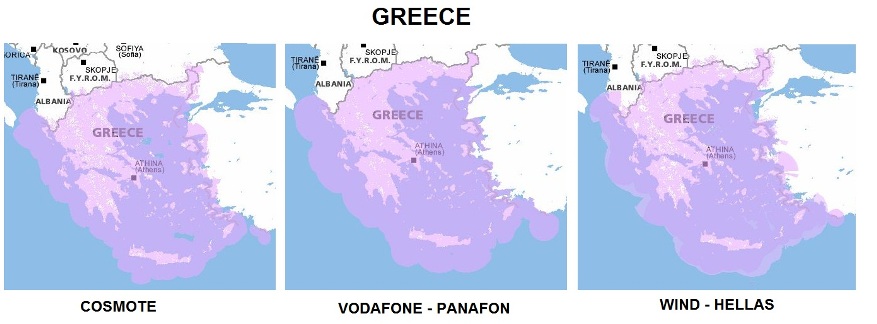
Mobile communications was first introduced in Greece in 1992. First companies that provided such services were Panafon (now Vodafone) and Italian Telestet (now WIND). Those companies started building their mobile networks in 1993 and in 1998 Cosmote (an affiliate of state telecommunications OTE company) have joined them.
Now, there are three major mobile carriers in Greece. Cosmote, which is an affiliate company and a property of OTE, the state telecommunications company. WIND – one of the first mobile carriers in Greece, as we've already mentioned, its former name was Telestet. The company is now the property of one entrepreneur form Egypt. Another major carrier is Vodafone. Initial company's name is Panafon, but the company was sold to English Vodafone and got a new brand name.
Greece uses the same European GSM standard, that supports voice calls and text messages. The frequencies are 900/1800 MHz. There are two frequencies for GSM standard because your phone is a duplex device, that is able to receive and transmit data simultaneously, so you can speak and hear your talker at the same time.
Also, if you plan your vacation or a journey to Greece you should know that all mobile phone and landlines phone numbers consist of 10 numbers and all mobile numbers begin with 69. GSM coverage in Greece is almost perfect, it covers the whole country, except of a couple of small islands.

The mainland part of Greece is perfectly covered, mobile phones work everywhere. Also, local SIM cards are quite easy to get, so you'll be able to get a local phone number. There are also two options for mobile phone users, that wish to get a local SIM card. They are postpaid and prepaid. The prepaid option, is the only one that is suitable for foreigners.
Now, a couple of words about mobile Internet. First of all we should tell you that all the major mobile carriers are providing 3G Internet only, based on the UMTS standard. UMTS uses 2100 MHz frequency and is the most widely spread 3G standard in the world. The only problem with 3G in Greece is a rather poor coverage, there are areas, where there is no 3G reception at all. The speed is also not really high. By the way, major carriers have started building own 4G networks, they will provide 4G mobile service, based on LTE standard, that uses 875 MHz frequency and is world's most popular 4G standard. So, if you'll be in Greece in a couple of years you will probably able to use your LTE compatible phone there.
But Greece can provide a decent alternative to the unreliable 3G. There are really lots of Wi-Fi hotspots there, and you will surely be able to find one at the airport, hotel, restaurant. There are Wi-Fi hotspots even in major supermarkets. The only problem here is that Wi-Fi is rather vulnerable type of connections, and we at Jammer-Store strongly recommend you to avoid accessing your bank account, or in any way transfer any valuable information over Wi-Fi, not only in Greece, but all over the world.
Prev : Portugal
Next : Poland



